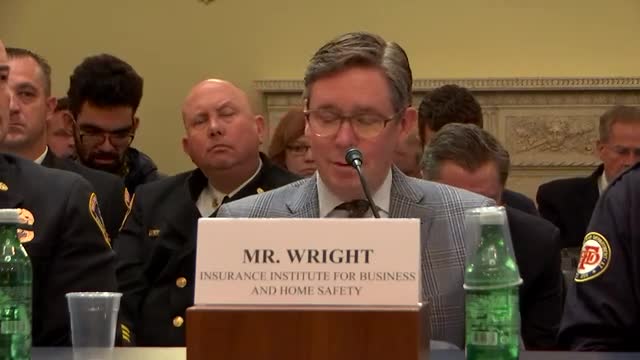Federal and State Programs Introduce Tax Incentives for Wildfire Resilience Investments
May 16, 2025 | Natural Resources: House Committee, Standing Committees - House & Senate, Congressional Hearings Compilation
This article was created by AI summarizing key points discussed. AI makes mistakes, so for full details and context, please refer to the video of the full meeting. Please report any errors so we can fix them. Report an error »

In a pivotal meeting held by the U.S. House Committee on Natural Resources, the Oversight and Investigations Subcommittee focused on the pressing issue of wildfire resilience. As the threat of wildfires looms larger each year, the discussions highlighted the urgent need for effective strategies to protect communities and ecosystems alike.
Amidst the backdrop of increasing wildfire incidents, committee members emphasized the importance of narrowing the pathways of destruction across federal, state, and private lands. This approach aims to create a more resilient landscape that can withstand the devastating impacts of wildfires.
One of the key proposals discussed was the introduction of tailored financial incentives and support mechanisms designed to empower homeowners. These initiatives could encourage individuals to invest in meaningful wildfire resilience measures for their properties. Among the suggested tools were tax incentives, grant programs, and disaster savings accounts, all aimed at making it easier for homeowners to take proactive steps in safeguarding their homes against the threat of wildfires.
As the meeting unfolded, it became clear that a collaborative effort is essential. By combining resources and strategies from various levels of government and the private sector, the committee believes that a more robust defense against wildfires can be established. The discussions not only underscored the immediate need for action but also painted a picture of hope—one where communities can thrive in the face of natural disasters.
As the committee moves forward, the implications of these discussions will resonate far beyond the meeting room, potentially shaping policies that protect lives and property in the years to come. The call for action is clear: investing in wildfire resilience is not just a necessity; it is a responsibility that must be embraced collectively.
Amidst the backdrop of increasing wildfire incidents, committee members emphasized the importance of narrowing the pathways of destruction across federal, state, and private lands. This approach aims to create a more resilient landscape that can withstand the devastating impacts of wildfires.
One of the key proposals discussed was the introduction of tailored financial incentives and support mechanisms designed to empower homeowners. These initiatives could encourage individuals to invest in meaningful wildfire resilience measures for their properties. Among the suggested tools were tax incentives, grant programs, and disaster savings accounts, all aimed at making it easier for homeowners to take proactive steps in safeguarding their homes against the threat of wildfires.
As the meeting unfolded, it became clear that a collaborative effort is essential. By combining resources and strategies from various levels of government and the private sector, the committee believes that a more robust defense against wildfires can be established. The discussions not only underscored the immediate need for action but also painted a picture of hope—one where communities can thrive in the face of natural disasters.
As the committee moves forward, the implications of these discussions will resonate far beyond the meeting room, potentially shaping policies that protect lives and property in the years to come. The call for action is clear: investing in wildfire resilience is not just a necessity; it is a responsibility that must be embraced collectively.
View full meeting
This article is based on a recent meeting—watch the full video and explore the complete transcript for deeper insights into the discussion.
View full meeting